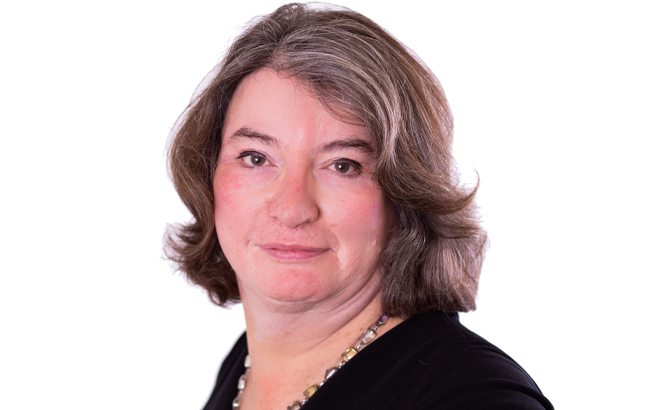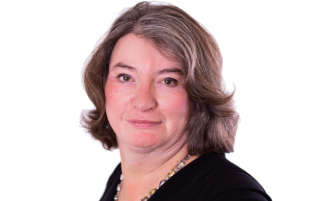Old Square Chambers’ employment and discrimination barrister Robin White talks to Amy Ulliott about transitioning at the Bar, the need for visible role models and why the official gender recognition process needs to change
Did you find it easy to come out at work, and were there any particular barriers that you faced?
It wasn’t really a choice. I got close to transitioning in my 20s but had a very bad experience. I worked for British Railways and my promotion was blocked and I was effectively hounded out of my job. I had a very bad period immediately after, but I came out of that wanting to be a discrimination barrister.
I wouldn’t have been a lawyer in my early 20s but by my later 20s, my life experiences had pushed me in that direction. But they had also put me back in my box. I worked very hard to try and be what society wanted me to be but by my mid-40s I knew I was living a lie; living inside a sort of cocoon that wasn’t really me. I either had to transition or jump off a cliff. But I have exciting, interesting, well-paid work and I wanted to carry on doing exactly what I was doing, exactly where I was doing it. So there wasn’t really a choice.
How did your chambers react to your transition?
I went to see my head of chambers, Jane McNeil, and said ‘there’s something you need to know’. She was quite surprised but had thought I was coming to tell her that I was terminally ill so said this was certainly better. Chambers were a bit wary, because there obviously wasn’t a manual for this so we had to make it up as we went along. But it worked out fine. If anything, I have a better practice after transition than I had before.
With your position as one of the only openly practising trans barristers in the country, do you feel an obligation to be a role model?
I used to be skeptical around role model-y stuff, and then a couple of things changed my mind. I got involved in the Featherstone LGBT Moot, which is run by LSE each year. It particularly draws in LGBTQ+ law students and they told me how important it is for them to see someone visible and out in practice. I’ve seen how represented people can feel when senior management publicly show they value LGBTQ+ staff. This is the month when half the corporations in England change their logos to some version of the pride flag. If that’s all they do, then that’s a failure, but if that’s a symbol of the fact that they take inclusion of everybody seriously then that’s great – equality means nothing unless it’s for everybody.
What was your motivation to use your voice and be vocal on trans issues?
I didn’t really have a choice in that I transitioned and there I was. People asked about it and, as a legal professional these days, you have to do a certain amount of self-promotion anyway. I’m very happy to write articles and speak on panel events and do those things. It’s part of being a legal professional in the 21st century.
You also use social media, particularly Twitter, as a platform for your thoughts and commentary. What has your experience there been like?
Social media is, on one level, useful and can be fun and, on another level, awful. When I tweet, I don’t hide behind made up names or avatars; nobody is in any doubt about who I am. I believe in speaking freely and openly and that’s the nature of our society. But you do have to block the unpleasant people who want to use social media to be horrible to you. Equally, if you’re a person with visibility in the community, then you need to be visible and vocal.
How has the legal sector changed during your career, especially given the recent increase in commentary around trans people in the media?
It’s not a good time at the moment. The current process of official gender recognition with a panel deciding whether you’re T enough, is unpleasant, intrusive and demeaning. You don’t have to be gay enough, you don’t have to be black enough, so why should you have to be T enough? Trans people are currently a useful political football and there are some people who nakedly use minority groups as a way of stirring up their particular part of politics. Much like with Section 28 and the way gay people were treated 20 or 30 years ago, we will look back on this time and think about how wrong it all is.
That said, I actually think the legal sector is one of the sectors with the lowest barriers. I’ve had tremendous support from chambers, other lawyers and the judiciary, who look after me in tribunal and don’t allow inappropriate behaviour, which is exactly how it should be.
What advice do you have for junior lawyers?
The climate of fear in our society affects lawyers just like it affects everyone, and it may particularly affect junior lawyers. I would say to someone who is a junior trans lawyer, look around and find a role model or mentor that will help you. Most of us would happily not mind being contacted. It’s wonderful to spend time with law students, with all their energy and enthusiasm. I’d swap with them in a heartbeat to have that time over again, knowing what a great career law is. I get as much excitement out of going to court now as I did 29 years ago and if you like being front and centre and taking responsibility for your work, there’s no better career than being a barrister. Most clients don’t care whether you’re black, pink, green, red with blue spots, LGBTQ+ or not – they just want someone to win the case and it becomes less of an issue all the time.











